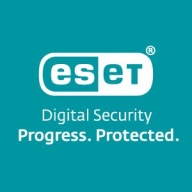

Microsoft BitLocker and ESET Endpoint Encryption are two prominent contenders in the drive encryption market category. BitLocker's integration with Windows provides it an edge in simplicity and cost, particularly favoring Windows-based organizations, whereas ESET's strength lies in its robust features and centralized management capabilities.
Features: BitLocker provides seamless integration with Windows, utilizing TPM for added hardware-level security. It excels in ease of implementation and management in Windows environments without additional licensing fees. ESET Endpoint Encryption stands out for its high-level encryption protection and centralized management, offering advanced options like encryption policies and virtual disks.
Room for Improvement: BitLocker faces challenges with slow encryption speeds and limited support for non-enterprise editions of Windows. Its dependency on TPM and lack of cross-platform compatibility highlight room for improvement. ESET Endpoint Encryption, while moderately priced, could improve in terms of pricing and integration with other systems. Users also note technical issues with updates and compatibility with newer Windows versions.
Ease of Deployment and Customer Service: BitLocker benefits from tight integration with Windows, simplifying its deployment process, yet customer service receives mixed reviews. ESET Endpoint Encryption, suitable for hybrid cloud setups, is moderately easy to deploy and receives varying reviews for customer service, emphasizing different strengths in support.
Pricing and ROI: BitLocker is cost-effective for Windows users due to its inclusion with many Windows licenses, reducing additional licensing fees. Its low cost is appreciated by reviewers. ESET Endpoint Encryption has tiered pricing options, perceived as moderately priced given its comprehensive feature set. The ROI for both products depends on organizational needs and infrastructure, with BitLocker's cost advantage appealing in Windows-focused environments.


ESET Endpoint Encryption is a simple-to-use encryption application for companies large and small. Take advantage of the optimized setup that speeds up the time to adoption for admins. The client side requires no user interaction, increasing user compliance and the security of your company data.
BitLocker is a full disk encryption solution that protects your data from theft, hacking, and loss. BitLocker achieves this by encrypting the entire drive that hosts your operating system and all your data. BitLocker can work on all operating systems, drives, or devices, including portable storage devices.
After BitLocker completes the data encryption, it generates a recovery key. Only those with the correct encryption key will be able to decrypt and access the encrypted files and information. Attempts to access secured data on premises or over the network will be met with either authentication prompts or error messages saying the data cannot be accessed.
BitLocker provides its users with peace of mind by improving security and reducing risks of critical data loss and intrusions.
Benefits of Microsoft BitLocker
Reviews from Real Users
Microsoft BitLocker stands out among its competitors for a number of reasons. Two major ones are its powerful encryption capabilities and its user-friendly user interface.
An ICT operations and security manager notes, “It is free and native to the OS. We don't have to worry about upgrades or maintaining the product. You encrypt the disk, and you save the recovery key. That's it. The person puts their password in, and after that, it is up to them. If they forget their password, they have to bring it in to get it unlocked.”
Kevin C., a director at Pathfinder, writes, “Theease of use is the most valuable feature. The ability to import data to build your frontend on top of the data is very simple and very useable.”
We monitor all Endpoint Encryption reviews to prevent fraudulent reviews and keep review quality high. We do not post reviews by company employees or direct competitors. We validate each review for authenticity via cross-reference with LinkedIn, and personal follow-up with the reviewer when necessary.